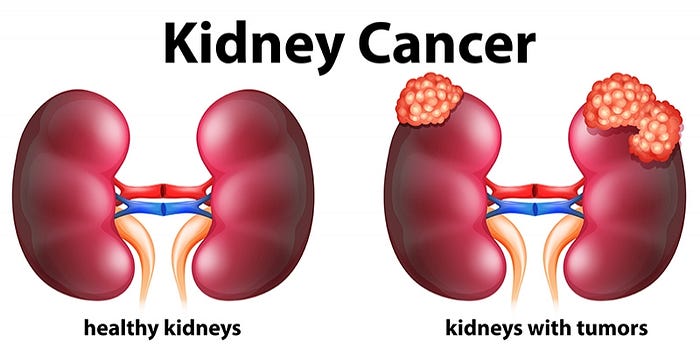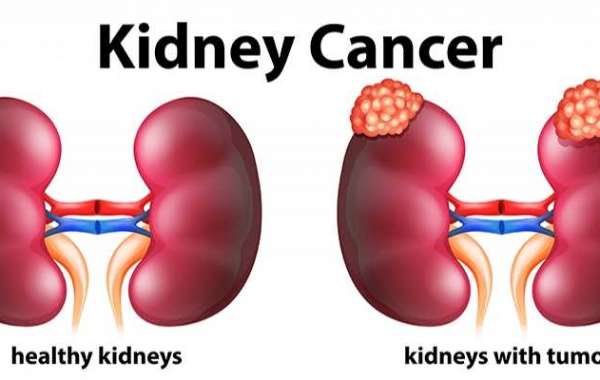Kidney cancer definition- medically known as renal cell carcinoma (RCC), is a type of cancer that originates in the kidneys, vital organs responsible for filtering waste products from the blood and producing urine. This article aims to provide a comprehensive understanding of kidney cancer, its risk factors, symptoms, diagnosis, and available treatment options.

Understanding Kidney Cancer:
Kidney cancer typically develops in the lining of small tubes within the kidneys called tubules. The most common type of kidney cancer is renal cell carcinoma, which accounts for about 90% of all cases. Other rare types include transitional cell carcinoma, Wilms tumor (usually found in children), and renal sarcoma.
Risk Factors:
Several factors may increase the risk of developing kidney cancer. These include:
- Age: Kidney cancer is more prevalent in individuals over the age of 40.
- Gender: Men are at a higher risk than women.
- Smoking: Cigarette smokers have a higher likelihood of developing kidney cancer.
- Obesity: Being overweight or obese increases the risk.
- High Blood Pressure: Hypertension has been linked to an elevated risk of kidney cancer.
- Family History: A family history of kidney cancer may contribute to an increased risk.
- Genetic Factors: Certain inherited conditions, such as von Hippel-Lindau disease, increase susceptibility.
Symptoms:
Kidney cancer may not exhibit noticeable symptoms in its early stages. However, as the disease progresses, symptoms may include:
- Blood in Urine: One of the most common signs, blood in the urine can give it a pink, red, or cola-colored appearance.
- Back Pain: Persistent pain in the lower back or side.
- Unintended Weight Loss: Unexpected and unexplained weight loss.
- Fatigue: Feeling consistently tired and lacking energy.
- Intermittent Fever: Sporadic fevers, often accompanied by night sweats.
Diagnosis:
Early detection is crucial for effective treatment of kidney cancer. If kidney cancer is suspected, the following diagnostic procedures may be employed:
- Imaging Tests: CT scans, MRIs, and ultrasounds can provide detailed images of the kidneys and surrounding areas.
- Biopsy: A small sample of tissue is removed from the kidney for examination under a microscope to confirm the presence of cancerous cells.
- Blood Tests: Elevated levels of certain substances in the blood may indicate kidney cancer.
Treatment Options:
The choice of treatment for kidney cancer depends on the stage of the disease, the overall health of the patient, and other individual factors. Common treatment options include:
- Surgery: The primary treatment for localized kidney cancer involves removing part or all of the affected kidney.
- Targeted Therapy: Medications are used to target specific abnormalities in cancer cells, disrupting their growth.
- Immunotherapy: This treatment boosts the body’s immune system to fight cancer cells.
- Radiation Therapy: High-dose radiation is used to kill cancer cells or shrink tumors.
- Chemotherapy: While less common for kidney cancer, it may be used in certain cases.
Prognosis and Outlook:
The prognosis for kidney cancer varies based on the stage at which it is diagnosed. Early detection and treatment generally result in more favorable outcomes. However, kidney cancer can be challenging to detect in its early stages due to the lack of distinct symptoms.
Conclusion:
In conclusion, kidney cancer is a serious condition that requires prompt attention and medical intervention. Understanding the risk factors, recognizing potential symptoms, and seeking timely medical advice are crucial steps in managing kidney cancer. Advances in medical research and technology continue to improve treatment options and outcomes for individuals diagnosed with this disease. If you suspect any symptoms or have concerns about kidney health, consulting with a healthcare professional is imperative for early detection and appropriate management.










